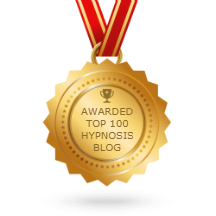By Hervé Boisdé
When people think of trauma they often get an image of a horrific and tragic life event such a war atrocity or being the victim of a violent crime. To be sure, experiencing these type of events can be deeply traumatic and may even result in PTSD or other long-term negative effects. But not all trauma is the same and different people react differently to traumatic experiences. In fact some soldiers live through profoundly disturbing war occurrences without developing PTSD. Another person might go through something that would not, on the surface, appear traumatic and still suffer PTSD-like symptoms afterwards.
As a hypnotherapist I work under the assumption that most of the issues people will want sessions for are as the result of traumas they have experienced in their lives. Phobias, negative habits (such as nailbiting or binge eating), chronic stress or anxiety, and even physical symptoms such as migraines or digestive problems, can usually be traced back, at least in part, to negative experiences in the person’s past. Usually these negative events are from childhood. We can even use a regression method to go back to the source of an issue and do a “trauma reversal” on that memory, which is a powerful healing technique. Often-times the client is surprised by how a seemingly insignificant event from childhood can have a lasting effect. I’ve had clients speculate about the causes of issues only to realize that it was a much less “traumatic” event that was the source of the block. A block, after all, is a limiting belief that your subconscious mind has accepted and which creates some type of negative emotion. Something that seems quite mundane, like failing a test in grade school, can create a block that influences a person decades later. Many times we aren’t even aware of these blocks until they create new symptoms much later in adulthood. We might get triggered by a stressful situation or an event that reminds the subconscious mind of that previous trauma and, as a coping mechanism, we experience a new set of symptoms of negative effects of the trauma that occurred many years previous.
I think it’s important to remember that we all experience events differently and what might be traumatic to one person might not be traumatic to another. Similarly, we shouldn’t assume that because we weren’t negatively affected by an occurrence, that someone else wasn’t. Take a minor traffic accident for example. Let’s assume that 2 people are in the same car that gets into a fairly mild fender-bender. One person shrugs it off as a minor event and the other has insomnia or fears about cars from then on. It’s not that one person is mentally stronger. It’s that perhaps the second person already had some blocks in their subconscious mind that were triggered by that event, causing them to have symptoms afterwards.
Some people believe that traumas can be carried over from past lives. Since I was trained in Past Life Therapy by Dr. Brian Weiss I think there is something to be said for this. Many people have healed issues such as food addiction or phobias by simply revisiting past life traumas in hypnosis. I’ve also tried to regress a client to the source of an issue in this life only to find that there was no cause. A Past Life Regression therapy session was then used to provide healing for the problem. Whether or not we can provide proof of past lives, it’s clear to many practitioners, including myself, that past life therapy does create remarkable results for many people.

